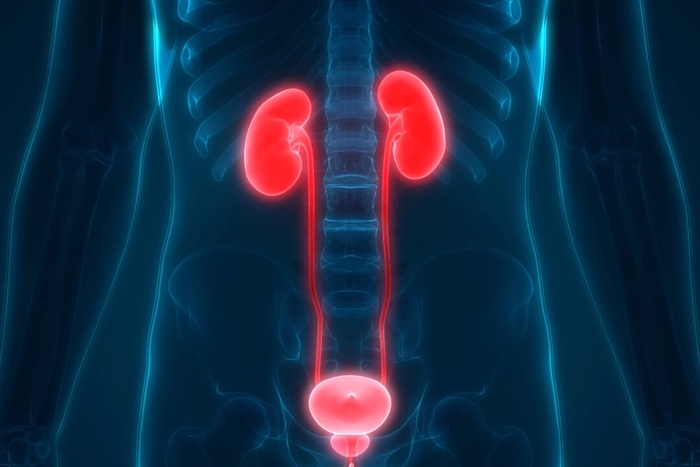By George Citroner
Despite antibiotics knocking out urinary tract infections (UTIs), many people still suffer persistent, miserable symptoms, and doctors don’t know why. But now, researchers may have found the culprit: nerve overgrowth.
By studying mice and human samples, they discovered that repeated UTIs trigger immune cells to release nerve growth factor (NGF), causing new pain nerves to sprout in the bladder.
This finding could finally explain the pain millions experience every day and pave the way for halting a vicious cycle of recurrent UTI torment.
Antibiotics Are Often Not Enough
While antibiotics typically clear UTIs, many people experience lingering pain afterward. Usually caused by E. coli bacteria from fecal matter, UTIs lead to painful urination and frequent urges and disproportionately affect women: Around 50 percent to 60 percent develop one in their lifetime, with at least 25 percent of women experiencing a recurring infection within six months.
Recurrent UTIs are typically defined as three or more per year or two or more in six months, Dr. Jason Kim, urologist and director of the Stony Brook Medicine Women’s Pelvic Health & Continence Center, told The Epoch Times. The standard treatment is antibiotics targeting the type of bacteria involved.
However, this often fails to address persistent discomfort after clearing the infection, while overusing antibiotics risks breeding drug-resistant bacteria.
A recent Science Immunology study may explain this mystery, potentially guiding more effective treatments.
Nerve Growth Linked to Persistent UTI Pain After Antibiotics
Researchers investigated why pain persists after UTI-related bacteria are eliminated with antibiotics. They collected urine samples from women with recurrent UTIs and compared them to samples from women without recurring infections, finding signs of nerve activation.
To better understand the issue, the scientists induced multiple UTIs in mice. Compared to UTI-free mice, the infected mice exhibited significant nerve growth.
To identify the cause, researchers repeatedly infected mice bladders with E. coli bacteria and treated them with antibiotics. Even after the bacteria were eliminated, the mice continued displaying UTI symptoms, including frequent urination and pelvic sensitivity.
Further analysis revealed that mice subjected to three infection/treatment cycles developed similar nerve overgrowth to that observed in human biopsies. Conversely, mice infected only once did not show an overabundance of nerves.
The findings suggest that repeated bacterial infections may activate mast cells, white blood cells that can release nerve growth factor, a compound that stimulates nerve growth and could lower the bladder’s pain threshold.
Recurrent UTI Prevention
UTIs typically cause burning during urination, pelvic pain, and frequent and urgent urination. Untreated UTIs during pregnancy can tragically lead to pregnancy loss.
Untreated infections could spread to the kidneys, causing pyelonephritis (kidney inflammation), potentially resulting in kidney failure, Dr. Kim said.
In older patients, unrecognized UTIs may cause systemic infections affecting the entire urinary tract, leading to sepsis, organ dysfunction, and even death if not treated promptly. Mental status changes are often the first sign of UTIs in older adults, he noted.
There are many reasons for recurrent UTIs. The first step is a full evaluation to identify the causes, Dr. Kim said. If no underlying issues are found and someone is getting three or more UTIs per year, different strategies are available, he explained.
One strategy is behavioral modification, starting with evaluating how often the patient urinates. “We actually see this in a lot of teachers and nurses where they don’t have time to urinate throughout the day and they may not urinate all day long,” Dr. Kim said. “I might ask them to urinate more frequently to keep their bladder empty.”
For women with pelvic floor dysfunction causing incomplete bladder emptying, Dr. Kim advised pelvic floor physical therapy. This involves consulting a physical therapist for a thorough evaluation and an individualized treatment plan.
Another strategy is increasing water intake. A 2018 randomized controlled trial found that patients who drank less than 1.5 liters of water per day (about 0.39 gallon or 6 cups) and increased their intake reduced the risk of recurrent bladder inflammation.
Cranberry supplementation—an old remedy surprisingly effective due to the plant compound proanthocyanidins (PACs)—is also an option, according to Dr. Kim. A 2016 double-blind, controlled study found that cranberry products containing 36 milligrams of soluble PACs prevented UTIs when used twice daily for seven days.






